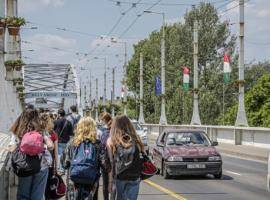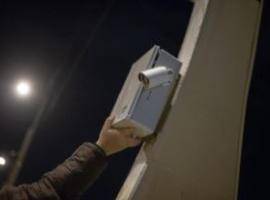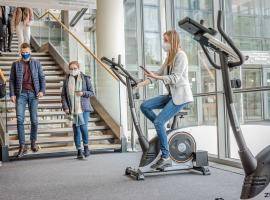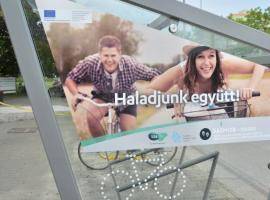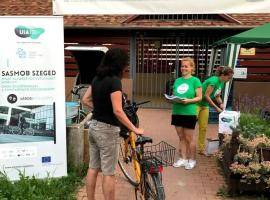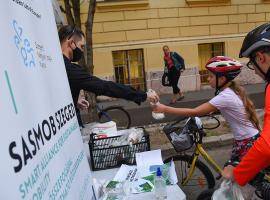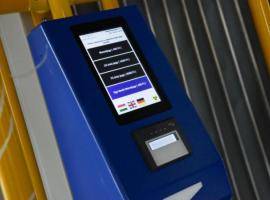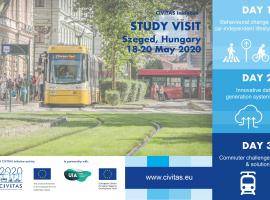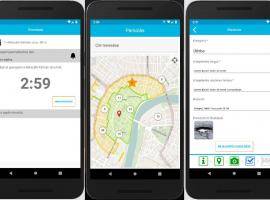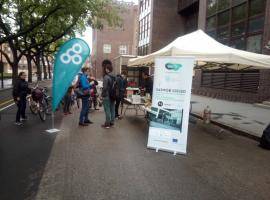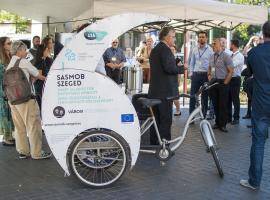What would you do and how? Experience exchange in the SASMob Project

Financial leaders, site managers and HR experts met in the IT and Presentation Centre of Szent-Györgyi Albert Agora to exchange information and experience and have a joint brainstorming session about what they could potentially achieve within their respective companies in the framework of the three-year SASMob Project. Gábor Heves, representative of the Regional Environmental Protection Centre and coordinator for workplace transportation plans said one of the aims of the meeting was to raise stakeholders’ awareness of the fact that this project is not a “single-player something”: it serves everyone’s interest and works well if many players take part and play a role in it. – We invited middle managers to this meeting, the next event will be organised for senior executives. This time, we focused on the elaboration of marketing campaigns. In each organisation, the aim is for the participants to convince their respective employees not to use the car to get to work, if it is viable. In other words, “we would like to change people’s behaviour” – said Gábor Heves.
Zsuzsa Kravalik, external expert for the SASMob Project, noted that radically changing everyone’s life was clearly not possible – but if someone goes to work by bike instead of public transport only once a week, it is a twenty percent change compared to previous travelling habits. "This is something that would have a tangible impact on a town of the size of Szeged. It is impossible to make everyone change their transportation routines – but if we can change people’s attitude and approach, it will definitely be to the benefit of Szeged. We do not intend to make employees do anything radical. The only thing we would like to achieve is for people to look at their weekly transport patterns and think whether they can organise their lives and programmes so that they can use public transport instead of their car to get to where they have to be" said Zsuzsa Kravalik.
At the workshop held in Szeged Agora, proposals were discussed and plans and support scenarios were reviewed. All the organisations had already identified the things they think could be implemented. This time, discussions were held about how to do this. To mention a concrete example, several companies raised the idea that it would come in handy to have a bike service within their site or, at least, a contract with a bike service where employees’ bicycles would be serviced and maintained for discounted prices – added SASMob’s external expert. The workshop was characterised by mutual inspiration between the participating employers.
"We are aware that many plans will remain plain ideas. Nevertheless, these meetings are still useful; it can easily happen that an idea raised by one company can be put into practice by another. There is a sort of a learning process in this SASMob Project. All these, as we have mentioned, shape people’s approach, and that is the most important thing" said Gábor Heves.
"Purchasing a new trolleybus often proves easier than organising such a campaign as the former is far more tangible. However, we are certain that an increasing number of ideas will sooner or later become reality" added Zsuzsa Kravalik.

